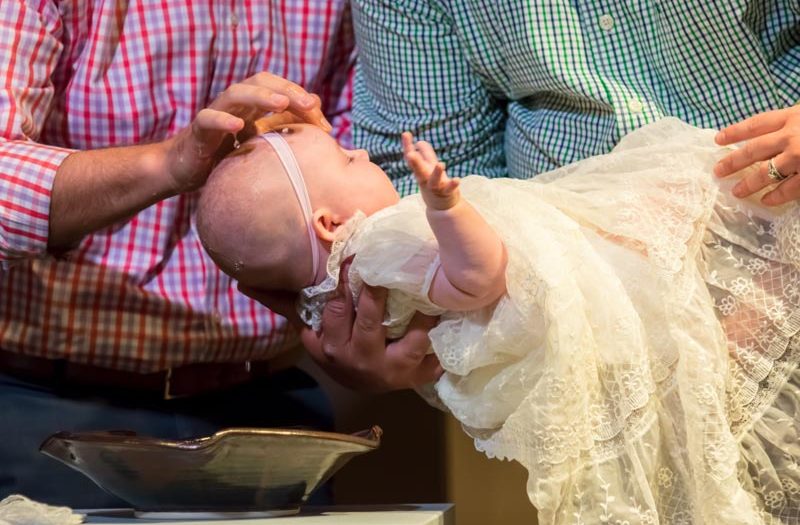We Believe, Teach, and Confess – Part 8 | What Do The Lutheran Confessions Say About Baptism?
Martin Luther was baptised when he was only one day old, on 11th November 1483, the day of St Martin of Tours. Therefore he got the name, Martin. He always thanked God that he was taken to the Sacrament of Holy Baptism so early and that he had been “in the hand of the devil only for one day.”
Thank you for reading this post, don't forget to subscribe!To baptise our children is not only an option. It is also not just a command to obey, but it has God’s promise of forgiveness and life. In His talk to Nicodemus, Jesus highlighted the need of a rebirth (John 3). This means that the life we receive from our parents is not enough to take us to heaven, because we are born in the flesh, and thus sinful, like our parents. It is necessary to receive the new birth of water and the Spirit that gives us life – eternal life.
Baptism seems to be something very simple: A handful of water and some words. Luther once said that if God had put a promise into something as arbitrary as picking up a piece of straw from the ground, he would do it, because it had God’s promise. But God didn’t put His promise on a piece of straw, but on water and the Word; and so I believe in God’s promise and I do His will.
In the Small Catechism, Luther summarised Baptism in four main questions and answers, always quoting Bible verses to confirm what he wrote. The four parts are: 1) What is Baptism? 2) What benefits does Baptism give? 3) How can water do such great things? 4) What does such baptizing with water indicate? In short: We have a command and a promise of God that we are to baptise all people for the forgiveness of sins; that the Word of God in and with the water does these things, along with the faith which trusts the Word of God in the water; and that Baptism is a daily and renewed experience in our life as we repent, believe and live a new life by God’s grace.
In the Large Catechism, Luther explains Baptism in more detail: “If I am baptised, I have the promise that I shall be saved and have eternal life, both in soul and body… No greater jewel can adorn our body and soul than Baptism… Baptism is a treasure which God gives us and faith grasps, just as the Lord Christ upon the cross is not a human work, but a treasure comprehended and offered to us in the Word and received by faith.”
“Every Christian has enough in Baptism to learn and to do all his life. He always has enough to do to by believing firmly what Baptism promises and brings – victory over death and the devil, forgiveness of sin, God’s grace, the entire Christ, and the Holy Spirit with His gifts… If you live in repentance, therefore, you are walking in Baptism, which not only announces this new life, but also produces, begins and promotes it. In Baptism we are given grace, Spirit and power to suppress the old man, so that the new man may come forth and grow strong. Therefore, Baptism remains forever… Repentance, therefore, is nothing else than a return and approach to Baptism… We see what a great and excellent thing Baptism is, which snatches us from the jaws of the devil and makes God our own, overcomes and takes away sin and daily strengthens the new man. It always remains until we pass from this present misery to eternal glory.”
In the Augsburg Confession, Baptism is linked with Original Sin. Article II states: “It is also taught among us that since the fall of Adam all men who are born according to the course of nature are conceived and born in sin. That is, all men are full of evil lust and inclination from their mother’s wombs and are unable by nature to have true fear of God and true faith in God. Moreover, this inborn sickness and hereditary sin is truly sin and condemns to the eternal wrath of God all those who are not born again through Baptism and the Holy Spirit.” And Article IX says: “It is taught among us that Baptism is necessary and that grace is offered through it. Children, too, should be baptized, for in Baptism they are committed to God and become acceptable to him.”
Soon after the beginning of the reformation movement, other reformers began to preach and to teach. One of the big differences between some of these reformers and Luther was the understanding of Holy Baptism. They didn’t accept the baptism of infants and children. They said that Baptism needs a personal decision, and that children don’t need baptism. They denied Original Sin and that Baptism is for the forgiveness of sins; it’s just a symbol, they said. And they began to re-baptize people. Luther violently opposed those so-called “Anabaptists.” Many churches follow this way nowadays, trusting more in the personal decision of a human being than in the Word and promise of God.
We as Lutherans cling to the Word of God as clearly explained in the Lutheran Confessions. Let us take daily comfort in our Baptism, and let us bring our children and godchildren to the gracious arms and Kingdom of Jesus through the water and the Word, trusting that God’s promise cannot fail.
Pastor Dr Walter Winterle, Cape Town


